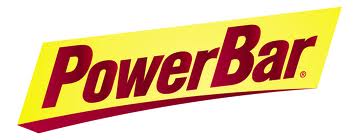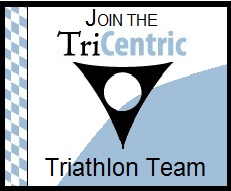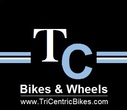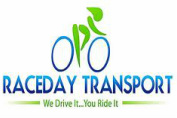
Get the most value from your equipment investments
I'm often asked about equipment, what to use, how to use it and "what's right for me?". It's a complex question so let's simplify it a bit. The bottom line is that you must be realistic with who you are and what equipment suits your skill set. It doesn't make a whole lot of sense to spend a lot of money on equipment with features that you will never use. On the other end of the spectrum... buying equipment that doesn't do all you need it to is a waste of money and an "upgrade expense" waiting to happen. Here's a quick question & answer guide to help make the most of your investments with equipment:
Q: Should I invest in a power meter?
A: For the bike, a power meter is by far the most accurate way to gauge intensity and work... period! It can take all of the "guess work" out of the equation and add tremendous value when used correctly. If it's in your budget and you are willing to obtain the knowledge on how to use the system (power meter computer, software and power based training), it is the best investment you can make.
Q: Should I use a heart rate monitor?
A: Short answer... YES. It will give you more information about what is going on with your body and allow you to make better decisions on training and recovery. It will also promote better zone awareness than perceived exertion alone. Keep in mind that heart rate is not an exact representation of intensity but rather the total stress you are experiencing... many, many factors influence heart rate.
Q: Should I buy a Triathlon bike?
A: Yes... if you have the budget, ideally you will have a Tri bike and a road bike. You should be fit to each bike within it's geometry and even better if you are able to limit the variant between each bike fit. This takes skill and experience as well as a good working knowledge of equipment. A tri bike is sport specific and has both the geometry and aerodynamics to enable maximum efficiency... without a proper fit, much of that can be wasted.
Q: Do I need a bike fit?
A: I'm a firm believer in bike fit as the benefits are tremendous. Yes... everyone needs a bike fit as it will ensure you are comfortable through sound bio-mechanics, Aerodynamic (you, the rider create the most drag by far) and power generation are optimized. Good bike fit ensures that everything is sustainable.
Q: Should I use GPS?
A: It's very individual... GPS when combined with heart rate offers many benefits such as correlating the course profile to your heart rate and zone distribution, creating new routes, sharing with your coach and training partners, etc... I would put GPS in the "Nice to have" box but it's certainly not necessary
Q: What is my best investment opportunity on the bike... wheels, helmet, power meter, coach?
A: Provided that you have done something to obtain knowledge about training and racing on a regular basis (articles, coaching, clinics, etc...) and had a good bike fit, an aero helmet (those funky tear drop ones) is by far the cheapest "speed" you can buy offering about the same benefit as wheels (which can be rented for race day). You should buy the helmet that fits your profile on the bike.
Q: Should I get Newtons? everyone seems to love them?
A: Newtons are nice shoes but they are certainly not necessary. A better investment is to learn running technique and build that technque into your run program... it's a process and you simply can't "buy" good running form. The shoes are a tool but not a solution.
Q: what do I need to improve my swimming?
A: Fins such as zoomers and discipline to use those fins for drills and technique improvement... it's that simple. Wall tag and masters won't get it done... learn the drills to correct body position and improve technique, then apply some "swim fitness" with pace and form accountability. There is a magic pill... Smart Work!
These tend to be the most common and repeated questions I get... if you have a specific question, drop me an email and I'll include it.
Cheers,
~B
Q: Should I invest in a power meter?
A: For the bike, a power meter is by far the most accurate way to gauge intensity and work... period! It can take all of the "guess work" out of the equation and add tremendous value when used correctly. If it's in your budget and you are willing to obtain the knowledge on how to use the system (power meter computer, software and power based training), it is the best investment you can make.
Q: Should I use a heart rate monitor?
A: Short answer... YES. It will give you more information about what is going on with your body and allow you to make better decisions on training and recovery. It will also promote better zone awareness than perceived exertion alone. Keep in mind that heart rate is not an exact representation of intensity but rather the total stress you are experiencing... many, many factors influence heart rate.
Q: Should I buy a Triathlon bike?
A: Yes... if you have the budget, ideally you will have a Tri bike and a road bike. You should be fit to each bike within it's geometry and even better if you are able to limit the variant between each bike fit. This takes skill and experience as well as a good working knowledge of equipment. A tri bike is sport specific and has both the geometry and aerodynamics to enable maximum efficiency... without a proper fit, much of that can be wasted.
Q: Do I need a bike fit?
A: I'm a firm believer in bike fit as the benefits are tremendous. Yes... everyone needs a bike fit as it will ensure you are comfortable through sound bio-mechanics, Aerodynamic (you, the rider create the most drag by far) and power generation are optimized. Good bike fit ensures that everything is sustainable.
Q: Should I use GPS?
A: It's very individual... GPS when combined with heart rate offers many benefits such as correlating the course profile to your heart rate and zone distribution, creating new routes, sharing with your coach and training partners, etc... I would put GPS in the "Nice to have" box but it's certainly not necessary
Q: What is my best investment opportunity on the bike... wheels, helmet, power meter, coach?
A: Provided that you have done something to obtain knowledge about training and racing on a regular basis (articles, coaching, clinics, etc...) and had a good bike fit, an aero helmet (those funky tear drop ones) is by far the cheapest "speed" you can buy offering about the same benefit as wheels (which can be rented for race day). You should buy the helmet that fits your profile on the bike.
Q: Should I get Newtons? everyone seems to love them?
A: Newtons are nice shoes but they are certainly not necessary. A better investment is to learn running technique and build that technque into your run program... it's a process and you simply can't "buy" good running form. The shoes are a tool but not a solution.
Q: what do I need to improve my swimming?
A: Fins such as zoomers and discipline to use those fins for drills and technique improvement... it's that simple. Wall tag and masters won't get it done... learn the drills to correct body position and improve technique, then apply some "swim fitness" with pace and form accountability. There is a magic pill... Smart Work!
These tend to be the most common and repeated questions I get... if you have a specific question, drop me an email and I'll include it.
Cheers,
~B
 RSS Feed
RSS Feed





